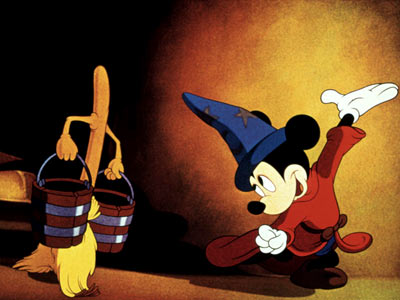There is something magical about cleanliness. The labor of cleansing, the work of arrangement and order, is an effort to produce a state in which nothing needs to be cleaned--because it already is clean--and to "return" an inhabited space to a status of purity unsullied by the fetid human condition, with its bodily fluids and smells and decay. It is magical because it isn't real, because it takes a produced arrangement--a space of disciplined and labored arrangement--and presents it as natural, un-marked, un-touched, and un-blemished. All that is not of that space has been removed, leaving that space purified, as it should be, more itself than it has ever been before.
In this sense, Mary Douglas also had it precisely backwards when she famously observed that "Dirt offends against order," and argued that "Eliminating it is not a negative moment, but a positive effort to organise the environment." "Dirt" requires order to exist as such; whatever it was before, it only becomes "dirt" once order has decided that it doesn't fit where it is, and needs to be removed. Which is to say, it is the coming of "order" which declares dirt to be "dirt," which is offended by it, and which declares its removal to be an improvement, a purification. But whatever becomes "dirt" was already there, before "order" entered the scene. Dirt was already there; it is order which enters and gives the name "dirt" to whatever it was before it was declared to be dirt, in the process, erasing what it had been. Eliminating dirt is a negation, because it is order's decision to name one thing external to where it is, to define its negation as a positive movement.
ICC Witness #69 fetishizes a particular commodity, a magic panga which in the fantasia of PEV requires no hand to wield it. Like violence, these magic pangas simply are, just do, only happen:
But a careful eye will note a single mark, a single blemish, a single pang, the left-behind and dirty residue of the tale which might be told of its own making.
Previous:


